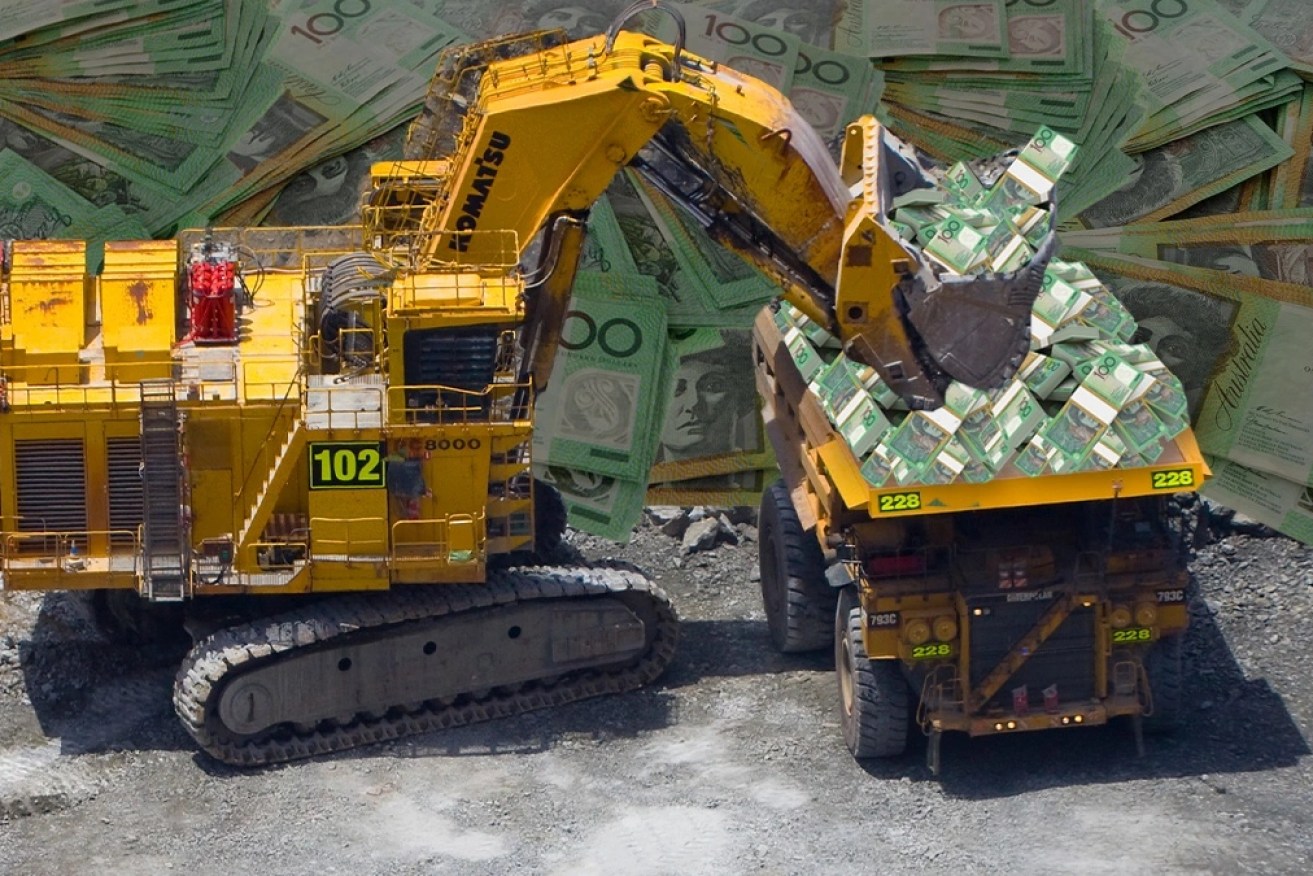CFMEU pushes for mining super profits tax as housing fix


Photo: TND
Leaders on both sides of the political divide have slapped down a proposal for a mining super profits tax that would fund an expansion of the nation’s social spending programs.
The powerful Construction, Forestry, Mining and Electrical Union published figures on Tuesday suggesting the policy could be key to solving Australia’s worsening housing crisis.
Speaking at the National Press Club in Canberra, CFMEU secretary Zach Smith said more than $500 billion in social and affordable housing construction could be funded by taxing mining giants, which have reaped windfall profits amid high commodity prices in recent years.
But the federal government was quick to shoot down the idea, with Prime Minister Anthony Albanese confirming it wouldn’t be pursued.
“No,” he said, when asked about the CMFEU’s mining tax proposal.
Shadow treasurer Angus Taylor also reacted negatively on Tuesday.
“Higher taxes won’t build more houses and heavy-handed government intervention will not unclog housing supply backlogs,” he said.
The Greens, however, were supportive, with housing spokesman Max Chandler-Mather saying the CFMEU was another voice calling on the federal government to do more on housing.
“From the unions, to economists, homelessness support services, and the construction industry, everyone is now telling Labor that it needs to do more to fix the housing crisis,” Mr Chandler-Mather said.
“The CFMEU’s report is clear, the housing crisis will get worse under Labor’s Housing Australia Future Fund, unless they invest far more in public and affordable housing, which is exactly what everyone from the Greens to the CFMEU are now pushing for.”
Mr Smith claimed a tax levied on just 0.3 per cent of Australian companies could underpin the building of 750,000 social and affordable dwellings, easing the strain on hard-hit households and renters.
“Not only is a super profits tax the best way to generate the funding we need whilst causing minimal harm, a super profits tax is a positive thing in and of itself,” Mr Smith told the National Press Club.
“Super profits are a failure in our economic system. Profit should only be sufficient to motivate private enterprise to do what it does.
“The rest is inefficiency; in Australia, we have allowed a whole lot of very cosy monopolies and oligopolies to develop.”
Fresh mining tax proposal
The CFMEU’s mining tax model, which was developed based on estimates by BIS Oxford Economics, would tax so-called mining “super profits” at a 40 per cent rate for companies with more than $100 million in annual revenue (about 0.3 per cent of companies).
Mr Smith said super profits would be defined on a company-by-company basis by multiplying shareholder equity returns by 5 per cent, plus the long-term bond rate.
Each dollar of profit after this threshold would be taxed, though companies would be able to offset losses against the tax similar to the existing company tax regime, Mr Smith said.
“Even with those allowances, it would still raise significant revenue,” he said.
Oxford Australia modelling found the CMFEU proposal would raise $290 billion in public revenue over the next decade and “considerably more” in the decade after that, though it’s worth noting that such projections are based on notoriously unstable commodity prices.
A separate model of a mining super profits tax proposed by the Australian Greens and costed by the Parliamentary Budget Office would raise $118 billion over a nine-year period.
But the essential rationale for a tax is the same – Australia’s largest mining companies are raking in huge profits, particularly amid the Ukraine war, and are being taxed relatively lightly compared to other countries like Norway.
Urgent need to address housing crisis
Mr Smith argued that redistributing profits away from these mining giants could provide key funding to addressing Australia’s housing crisis, which has become so acute that most renters are now experiencing housing stress.
“The average home owner in Sydney right now is seeing half their income going straight to mortgage repayments,” Mr Smith said.
“For those who want to get into the market, it would take the average income earner 12 years to save up enough for a 20 per cent deposit.”
Mr Smith said the construction industry had the capacity to build enough homes to meet rapidly rising demand, particularly as migration rates rebounded after COVID-19, but that more public funding was ultimately needed.
Albanese rebuffs proposal
Mr Albanese, however, was quick to reject the CMFEU mining tax proposal on Tuesday.
He said the government wasn’t going to introduce a mining tax, while Government Services Minister Bill Shorten also talked it down.
“The government has no plans that I’m aware of to have any sort of super tax,” Mr Shorten told ABC radio.
“The government’s got a strategy and think we should stay the course and back in what we know.”
That’s not surprising given Labor’s history: The party paid a heavy political price for introducing a mining tax under the Rudd/Gillard governments after the mining industry funded a massive campaign against the move.
But Mr Smith said the CFMEU wouldn’t be deterred by the lack of appetite from Canberra, and would make the policy part of its longer-term campaigning.








